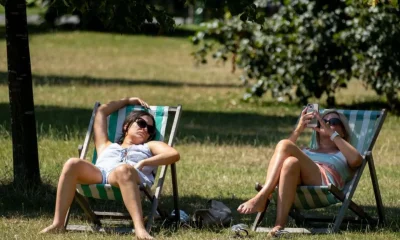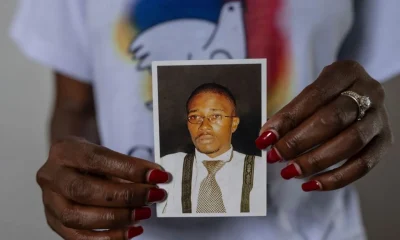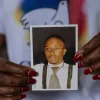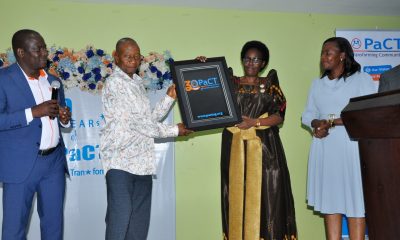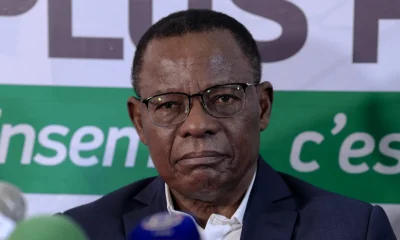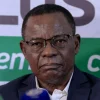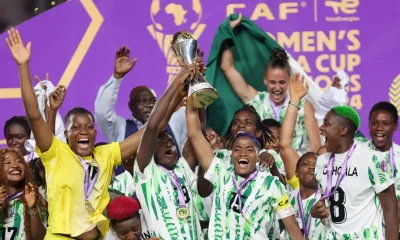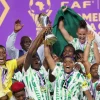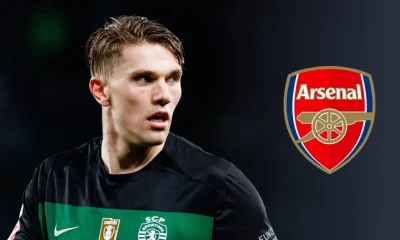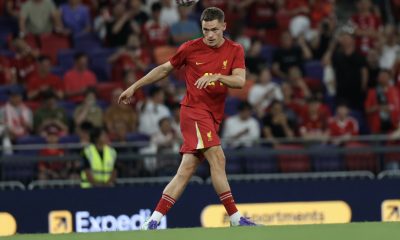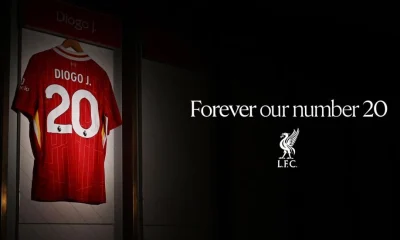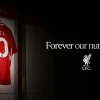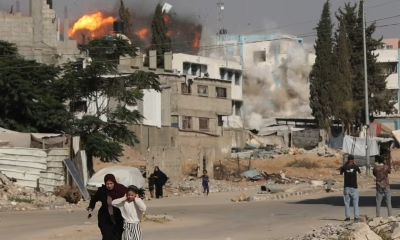News
Daniel Arap Moi, the Professor of Politics

The late Daniel Arap Moi
Daniel Toroitich Arap Moi, who was Kenya’s second president, died on Tuesday February 4, 2020. He lived a good 95 years.
Baba Moi, as he was fondly referred to by many Kenyans, rose from a primary school teacher to the highest office in the land, thanks largely to his active participation in the independence struggles along with the likes of Jomo Kenyatta. He was for example imprisoned together with Kenyatta, which helped to create the bond of trust and friendship between the two leaders.
The sharp ethnic divisions that characterised post-independence Kenya, did little to break the bond between Kenyatta and Moi, who came from the Kalengin tribe compared to Kenyatta’s Kikuyu.
Loyalty to Kenyatta
Moi’s loyalty to Kenyatta earned him trust from the old man to the point that even when fellow Kikuyu tried to frustrate him, Kenyatta stood by him. In fact it is rumoured that in realisation of Moi’s trust and loyalty, the two leaders entered a pact that Kenyatta would keep him as Vice President, and potentially rise to President in the event of his (Kenyatta)’s death, in return for protection of his family.
Moi also didn’t demonstrate any signs of greed for power, compared to other members of the powerful Kiambu mafia that comprised the likes of Charles Njonjo.
Nuwa Wamala Nyanzi, a renowned Ugandan visual artist lived in Nairobi in the years of transition from Kenyatta to Moi. He recollects the circumstances that surrounded Moi’s rise to power.
“I arrived in Kenya in 1978, around Easter time, the same year that Daniel Arap Moi ascended to the presidency of Kenya. Mzee Jomo Kenyatta was still alive. The atmosphere was very toxic. The Kikuyu (the President’s ethnic group), were loading it on other tribes. They were arrogant to the maximum. They used to call themselves ‘Kyus’, with a What-can-you-do-attitude.
“I remember we woke up in the morning and the national broadcaster was playing solemn music. I realised something was amiss. My suspicion was confirmed when they latter announced that the president had passed away in his sleep.
“Before that there had been some agitation for changing the constitution, which had started around 1976. The main crusader of the movement was Kihika Kimani, with support from other people like Byu Koinange, Dr. John Gishuru and Dr. George Mungai. They despised Moi even though he was the Vice President. Fortunately, he had the full backing of his boss – Mzee Kenyatta. Indeed one of the objectives of the change in the constitution movement was to sideline Moi by removing the position of the Vice President or to remove the provision that the Vice President would automatically succeed the President. This came against the background of Mzee Kenyatta’s advanced age.
“Moi would go see the President and he would be kept waiting. But in the process, he would play with a young Uhuru. That’s how they got the connection.
“Despite the machinations of the Change the Constitution movement, Mzee Kenyatta stood by his vice President – Moi. He planned with his Attorney General then Charles Njonjo to silence the movement.
“One day Charles Njonjo chose to make a proclamation that discussing or imagining the health of the president was treasonable. That is how he killed the debate. Of course it continued but with diminished impact.
“At the death of Mzee Jomo Kenyatta, Moi not only took over as caretaker president for three months, but he also took very good care of the Kenyatta family.”
The three months he served as caretaker president were enough for him to consolidate his power. He won the next elections and secured his own mandate. His rise was greatly helped by Charles Njonjo but also his smart political manoeuvrers that allowed him to make allies and eliminate his enemies.
After three years in power, Moi’s enemies clearly felt they were losing the grip on power and grew more desperate. They used a Lieutenant in the names of Hezekiel Ochuka to launch a coup in 1982. Fortunately for Moi, they lacked the support of the broader army partly on account of their elite status in the force.
Thanks to the superior tactics of a certain Brigadier named Muhamood Muhammed, the coup was foiled.
“When Gen. Muhammad heard that some junior officers in the Kenya Air Force had overthrown the government, he immediately organised a rescue mission where he set up snipers to pretend to be Red Cross people on a rescue mission,” says Nnyanzi. He recalls further that Gen. Muhammad did his job so well that the coup attempt lasted just six hours before the government recaptured the national Radio and TV station.
Having survived the coup, Moi fell out with his once close ally Charles Njonjo who, it was rumoured, had plotted to remove him. A commission of inquiry was instituted which convicted him. Cleverly for Moi, he never victimised Njonjo, although he was ostracised. He was allowed to keep his businesses and Njonjo’s cronies were given key positions.
Moi’s influences on Uganda
Daniel Arap Moi’s long reign certainly had a significant influence on Uganda. One of Moi’s biggest imprints was his role in mediating for peace between the government of Gen. Tito Okello Lutwa and the then rebels of Yoweri Museveni’s NRA.
Nnyanzi recalls that despite Moi’s active participation, Museveni ignored the peace talks and continued fighting.
“This riled Moi. As the chief mediator, Moi felt that Museveni had despised him. Even after Museveni took over power, Moi took some time before he could recognize him,” recalls Nnyanzi.
In the face of frustration, Moi turned hostile against Ugandans, many of whom had fled to Nairobi as refugees and others as rebel sympathisers.
Nnyanzi recalls witnessing the hostility against foreigners in Kenya.
“As Ugandans, we worried about Moi’s Jamuhuri day remarks. On one of those days, Moi sharply criticised foreigners who were destabilising his country. He never made mention of the neighbouring countries, but the police officers used it to torture and vent their anger against foreigners particularly Ugandans.”
Museveni’s stubborn rejection of Moi’s role aside, Museveni and Moi did not get off to a good start. Nnyanzi argues that this partly came from the fact that Museveni came with a socialist attitude that went counter to Kenya’s economic ideology at the time.
“The ruling class in Kenya had embraced capitalism and were doing business. It is probable that Moi and his allies had envisioned brighter business opportunities in Uganda under new leadership. For example, Moi and his cronies operated a transportation business between Uganda and Kenya. But when Museveni came to power, he decided Uganda was not going to use road transport but rather rail transport, because it was cheaper. This likely riled Moi.”
Moi’s resilience in the face of sanctions
Moi’s presidency was tested by international sanctions that were slapped on Kenya due to his decision to suppress opposition and multi-party democracy.
But using his links with key business people in Kenya, coupled with a strong work ethic among Kenyans and a developed manufacturing sector, Moi weathered the sanctions that lasted nearly 8 years.
In fact, it was during the sanctions era that Moi stamped his most memorable mark on the economy of Kenya. For example, he introduced the school feeding programme in which every primary going child would be given a pint of milk. thrice a week This greatly boosted school enrolment.
He also used the anti-western rhetoric to rally people to start self-help projects. With support from the government, Moi mobilised the wanaichi to build health centres under the spirit of Harambee, some of which took the name Nyayo wards.
A Professor of politics
Moi is widely referred to as a professor of politics. This arose from the craftsmanship he employed in dismantling his opponents. He used a number of strategies ranging from sheer brutality to divide and rule. He also used the state’s financial apparatus to financially constrict his opponents like a python.
Moi also relied on alliances and played the ethnic card to divide his opponents. One of the most master strokes came when he managed to beat the opposition Rainbow Alliance that had united to uproot him from power.
According to Nnyanzi, the way Moi managed his transition, was another master class display of political craftsmanship.
According to commentators, despite his diminished popularity, Moi managed to secure a lot of concessions from his opponents. For example, they agreed not to take him to court, to protect his family in addition to taking a fat pay and other privileges in retirement.
Comments



